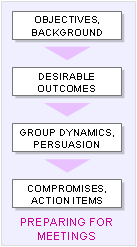Blog reader Michelle from the University of Kentucky, Lexington asked me
“I am preparing my résumé for an upcoming job fair, and I’d appreciate your suggestions on the choice of fonts.”
Serif and Sans-serif Fonts
Font families are classified according to their appearance: serif fonts, sans-serif fonts, mono-space fonts, cursive fonts, fantasy fonts, etc.
Characters in serif fonts have little projections or ‘tails’ (serif = tail in French) at the end of strokes and line widths that thin out on curves. The serifs guide a reader’s eyes to flow across lines of text. Conventionally, serif fonts are used for smaller text such as blocks of texts in newspapers. Serif fonts are harder to read from a distance.
Characters in sans-serif fonts have more consistent line widths and do not have tails (sans = without in French). Sans-serif fonts appear clear and balanced in shape and in form. Conventionally, sans-serif fonts are used for larger text such as headlines or text in posters. Sans-serif fonts are the most popular choice for on-screen (TV, computer, etc.) text because of their clarity in display.

Fonts for a Résumé
Résumé reviewers expect résumés to be professional–readable and inviting. Serif fonts are the de-facto standard for résumé text. Times New Roman (the default font in Microsoft Word), Book Antiqua or Palatino (my personal favorite,) Garamond and Times are the most popular serif fonts for résumés. I would suggest using serif fonts for the entire résumé. You may use sans-serif fonts for section headings and/or your name.
Cursive or decorative fonts easily distract the eye and make the résumé look unprofessional. Explore fancier fonts only if you desire a career in fine arts or graphic design.
Font size: 10-, 11- or 12-point only
 Font size is measured in points. A point represents 1/72 of an inch; text in 72 points prints to text of one-inch height. Use a 10-, 11- or a 12-point font for content. Begin with an 11-point font and increase to a 12-point font to fill up the page or decrease to a 10-point font if you cannot fit all the details on one page. (All primary details, academic backgrounds and professional accomplishments should fit into one page.)
Font size is measured in points. A point represents 1/72 of an inch; text in 72 points prints to text of one-inch height. Use a 10-, 11- or a 12-point font for content. Begin with an 11-point font and increase to a 12-point font to fill up the page or decrease to a 10-point font if you cannot fit all the details on one page. (All primary details, academic backgrounds and professional accomplishments should fit into one page.)
Section headings can be one or two points larger than content. Subheadings, such as name of the university or employer or your job title, should be set in standard font size. Do not increase the font size for your name; your name will look disproportionate.
Consistency in Formatting
As with every other detail on the résumé, viz., content, structure, paragraph spacing, etc., use consistent font formatting. In Microsoft Word, the ‘Format Painter’ tool is handy to copy formatting to various sections of text or paragraphs.
Making your Résumé Standout
On my recruiting trips to colleges, one of the most common questions students ask me is how one could make his/her résumé stand out. You can make your résumé standout primarily based on the content in the résumé: your accomplishments, academic strengths, extra-curricular involvement, leadership activities, etc.
However, résumé reviewers form their first impressions, mostly subconsciously, on how well the content is structured and how well the text is presented. On average, reviewers spend as little as fifteen seconds before they decide to read your résumé further for detailed consideration. Hence, the value of preparing a résumé with an orderly, consistent, professional look-and-feel cannot be overstated.
 Meetings are important organizational tools. Whether as one-on-one conversations or as larger all-employee information sharing sessions, meetings are integral components of getting work done. Despite some obvious benefits, most meetings are not very productive and are longer than necessary. One of the primary reasons for the lower productivity of meetings is that attendees come unprepared.
Meetings are important organizational tools. Whether as one-on-one conversations or as larger all-employee information sharing sessions, meetings are integral components of getting work done. Despite some obvious benefits, most meetings are not very productive and are longer than necessary. One of the primary reasons for the lower productivity of meetings is that attendees come unprepared. This reminds me of another instance of careless mistakes at
This reminds me of another instance of careless mistakes at